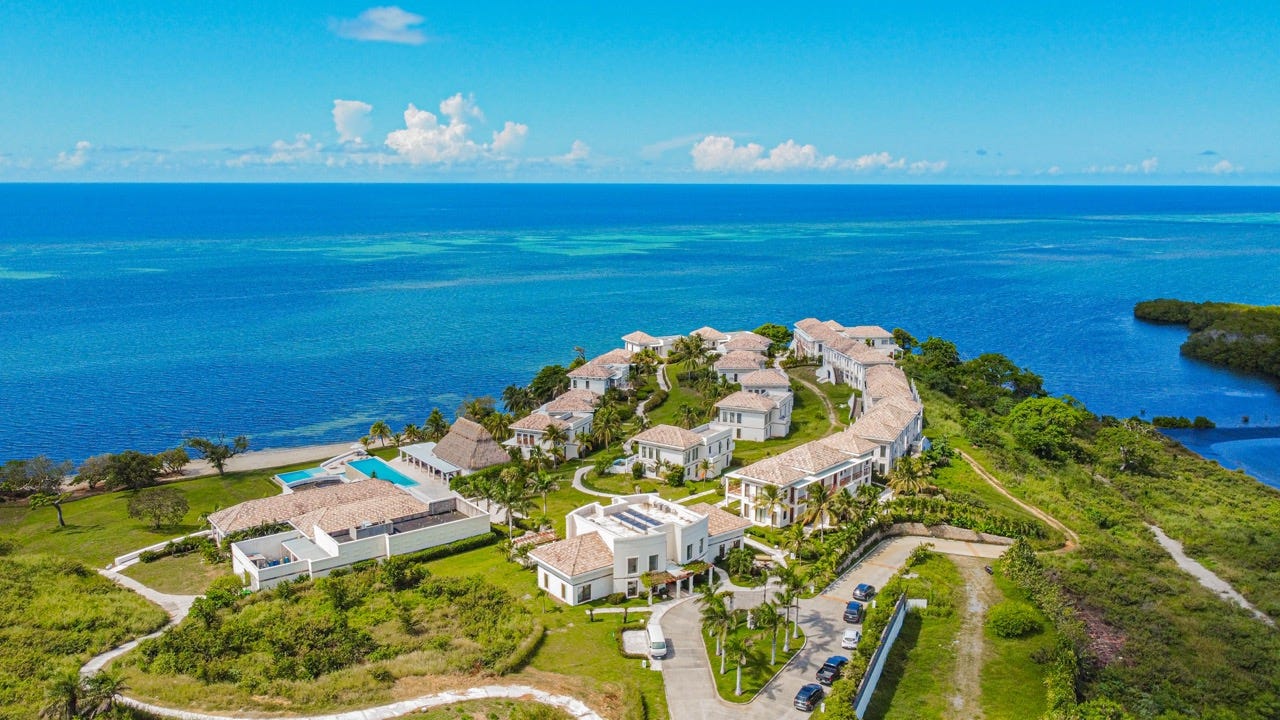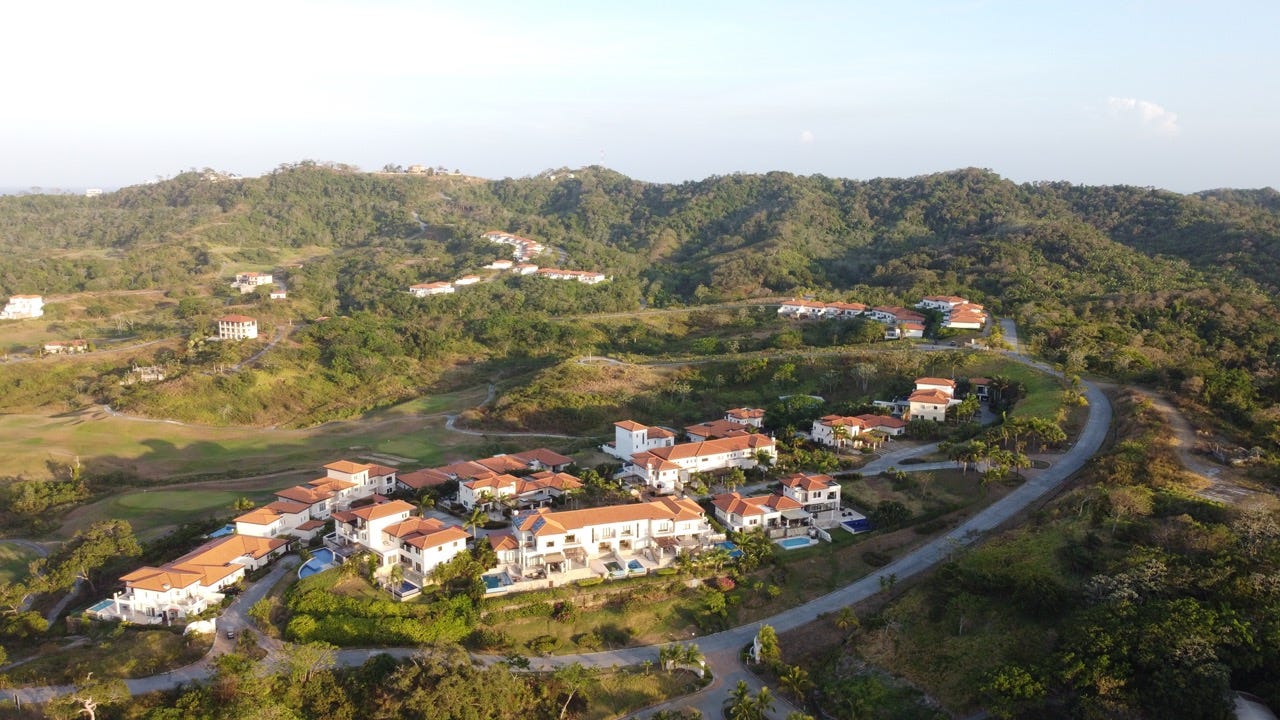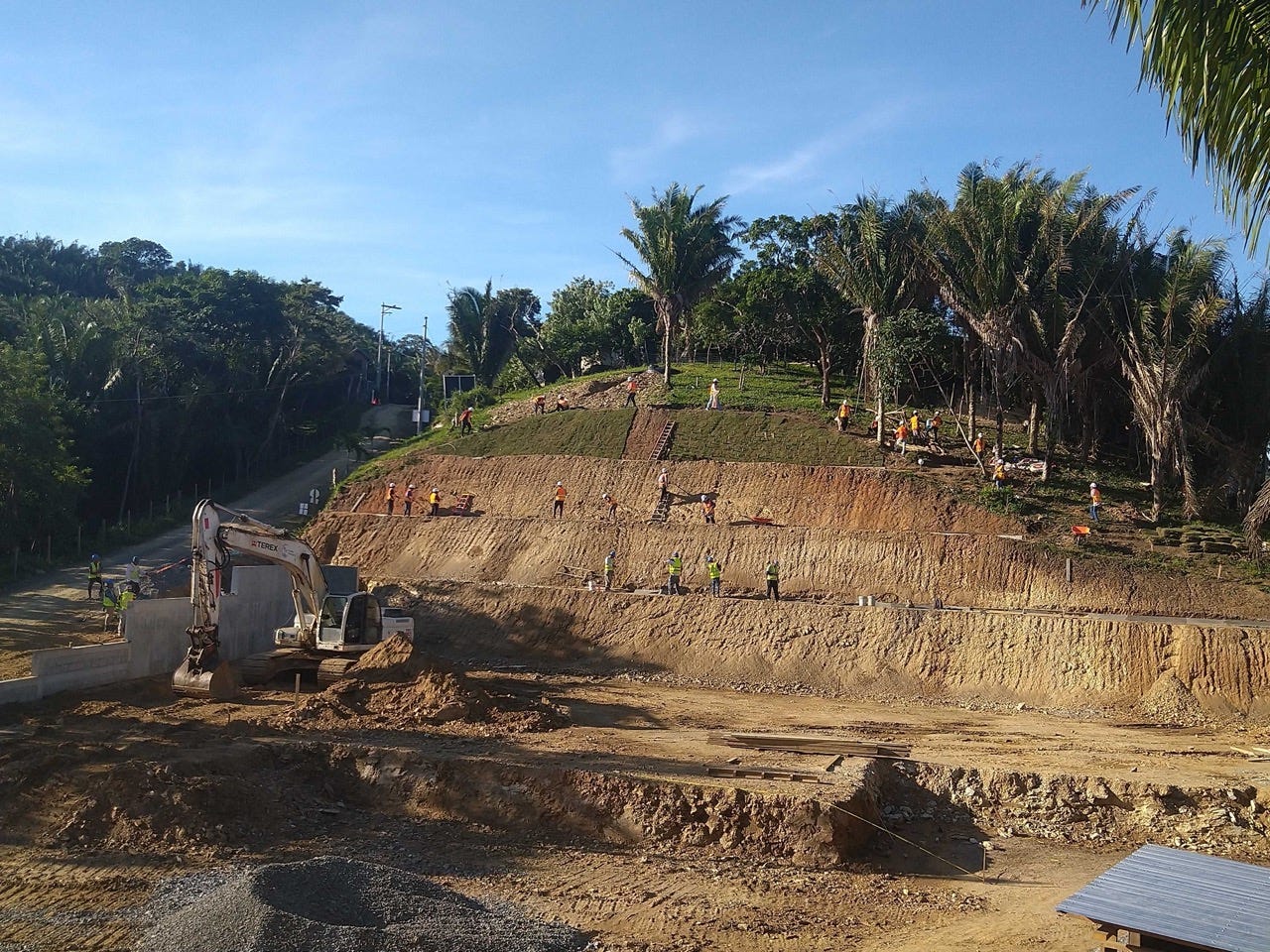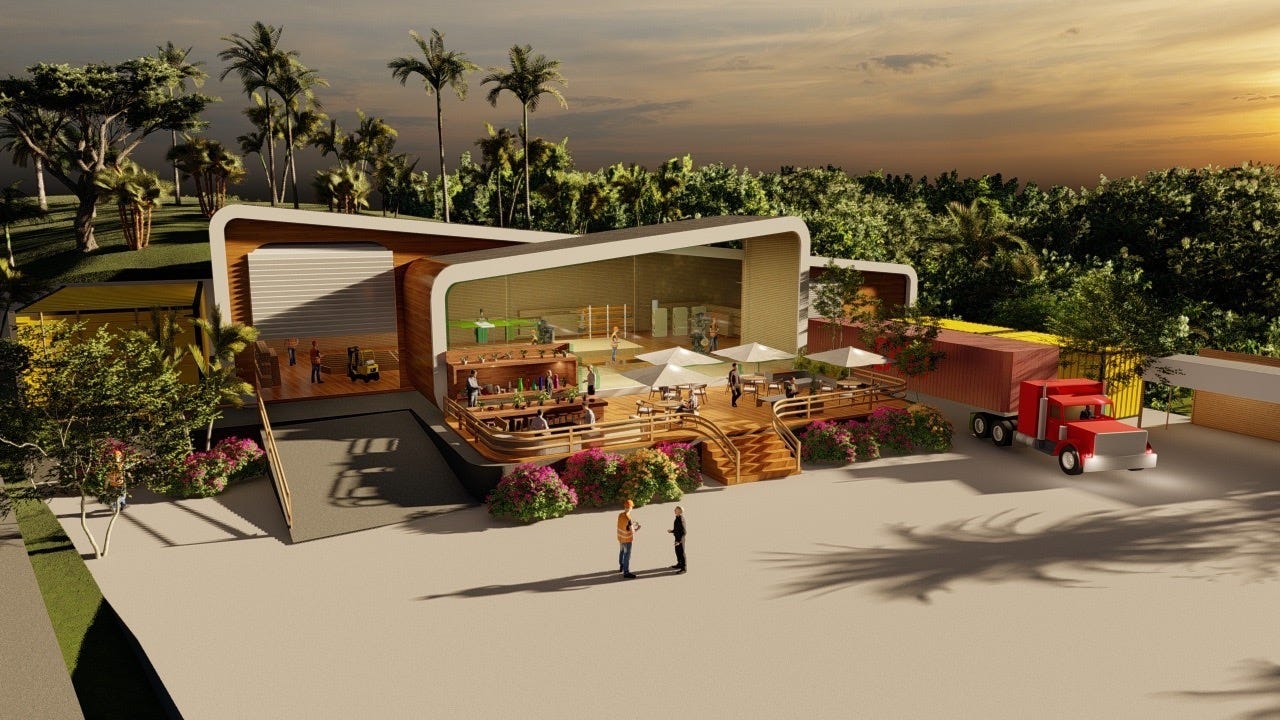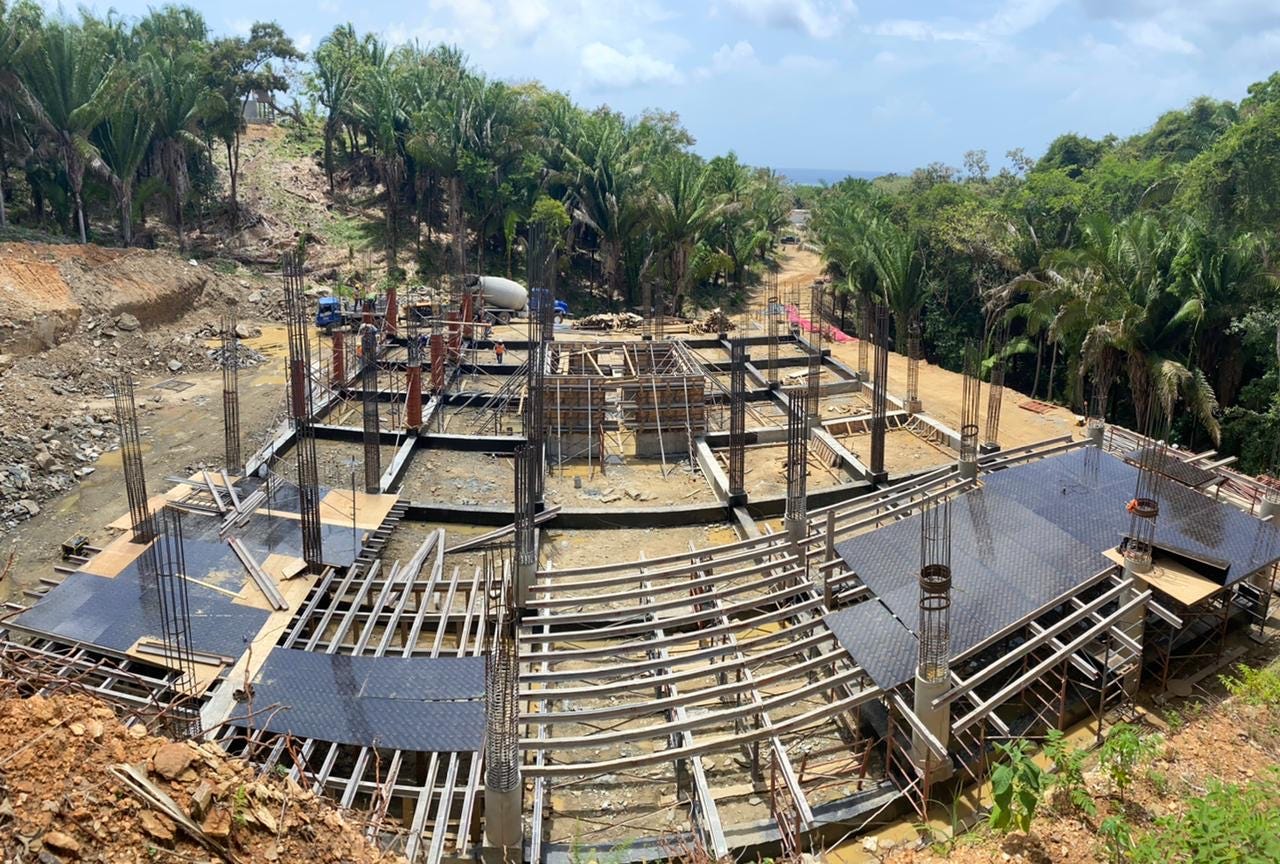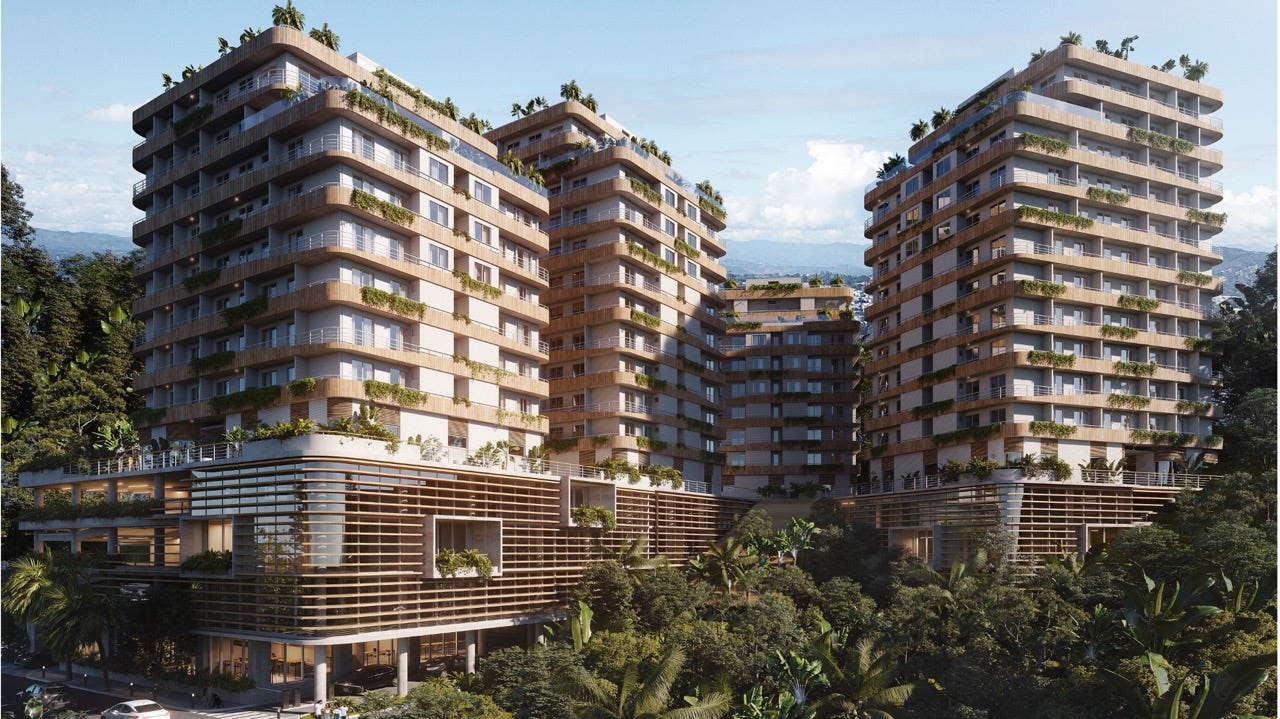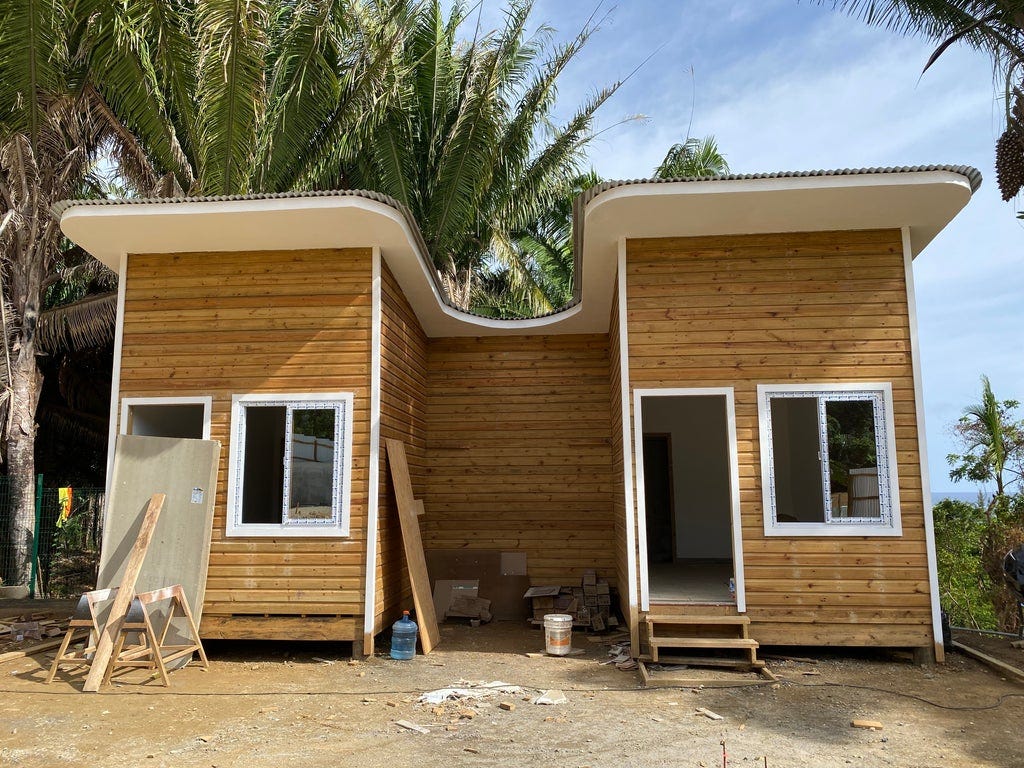Model City Monday 6/27/22
Goodbye, ZEDE Law
The story so far: in the mid 2010s, Honduras passed a first-in-the-world law saying that private actors could apply to run charter cities / special economic zones (ZEDEs) on Honduran territory. Three groups took them up on the offer and designed various interesting projects.
In January, Honduras kicked out the right-wing government that passed the ZEDE law and replaced it with a socialist party led by Xiomara Castro, which had made opposition to the ZEDEs part of its platform. In April, the new government repealed the ZEDE law, with uncertain consequences.
Everyone agrees that creating new ZEDEs is now illegal. There’s less clarity on what happens to the existing projects. The government that instituted the ZEDE law wanted to protect ZEDEs from future governments changing their minds, and added various protections saying that once the ZEDEs existed it should be very legally difficult to close them down. In theory, it would take acts of two separate legislative terms (this one counts as one), and even then the ZEDEs would have (according to international treaties on protecting investments) up to a fifty year grace period to wind down their activity.
Prospera, the first and largest ZEDE, has (as usual) dominated press coverage. They state that the government hasn’t asked them to shut down, that the government continues to accept payments Prospera owes them for its continued operation, and that when Prospera has told the government that it plans to keep operating, nobody in the government has objected.
— This (~4:00) is my main source for Prospera’s position and what they’ve done. —
They’ve also retained the services of White & Case LLP, described as one of the best international arbitration law firms in the world. They add that sophisticated investors have given them over $30 million since Castro’s government was sworn in, representing a vote of confidence from the markets that they’ll be able to get through this.
What about the other two projects? The head of Ciudad Morazan, Massimo Mazzone, writes (copied from his Twitter and translated from Spanish by Google Translate):
Morazan.city received its permit in April 2020, we started building some months later . . . from the beginning, it was conceived and built as a complete community with a very large residential part.
The ZEDE law makes it possible to extend to individuals and families the advantages that the ZOLI (the traditional maquilas) extend only to companies, because the ZOLI are pure industrial parks, the employees work there but live outside.
I am interested in building a complete community, with families, jobs, schools, hospitals, parks and everything else that is the basis of a safe and dignified life. The prices are reasonable, 3,000L per month for houses of 60 meters, all included apart from electricity and water.
I am not interested in building an industrial park. If that had been the objective, the ZOLI already exist and are better than the ZEDEs, the companies in the ZOLI enjoy many advantages without having to spend to take care of public services for the people.
I don’t know if the government is serious when it says that it wants to find a way to maintain investments with a different regime from the ZEDE. I think there is a very large space for a compromise. I did not participate in the creation of the law, I found it as it was.
Many of the articles never interested me. I agree to delete or change them. But the most important characteristic, that families live, is not negotiable, simply because it was the only reason for the project. If this is not possible, I’m sorry, but I’m not interested in continuing.
Also:
Balance of the ZEDEs so far: No expropriation, no corrupt refugee, no “HN sale to the highest bidder.” Billions of investments, thousands of jobs, Honduran families living in peace and prospering. Many resentful social networks [???].
Yes, the Law is repealed, and it is false that ratification is needed. However, the Government is respecting the Zones, eg. sending Customs people every day because it is a free zone. Maybe they do it because they want to respect acquired rights and avoid lawsuits But I don’t think so, the Repeal Act says they don’t want to do it, and the rhetoric is clear.
I think they want to achieve a satisfactory agreement for all. I hope so, as I said there is a lot of room for a compromise, we found the law as it was, it can be modified. Obviously there are many details, but the two fundamental things for us are that 1) the possibility that new Zones can host individuals and families is respected, and 2) the same international guarantees that we have now are recognized.
I can’t find any statements from Orquidea, but my understanding is that their business model is less ambitious, they don’t have much incentive to resist this legal change, and they will probably devolve gracefully into a standard industrial park.
Goodbye, Reedy Creek
Reedy Creek Improvement District is a forty-square mile piece of Central Florida including the towns of Bay Lake, Lake Buena Vista, and - last but certainly not least - Disney World.
Florida gave the territory as a charter city to the Disney Corporation back in 1967, when they were first planning Disney World. Partly this was so Disney could handle the services for their theme park, but partly it was because Walt Disney had grand plans to build the “Experimental Prototype Community Of Tomorrow” (EPCOT), and Florida wanted to let him. According to Wikipedia:
EPCOT was to be a utopian autocratic company town completely controlled by Walt Disney himself and featuring commercial, residential, industrial and recreational centers, connected by a mass multimodal transportation system. Based on ideas stemming from modernism and futurism, it was designed to replace the inefficient infrastructure created by urban sprawl that was growing in the United States in the 1960s. Needing the flexibility and independence to establish and maintain his own specialized, personalized government, Walt lobbied the Florida Government to create what became the Reedy Creek Improvement District.
But Walt died the next year, his successors had less interest, and the plan was cancelled. Parts of it survived as the Disney World monorail (originally planned as EPCOT’s public transit) and as the EPCOT Center (a Disney World attraction memorializing the plan).
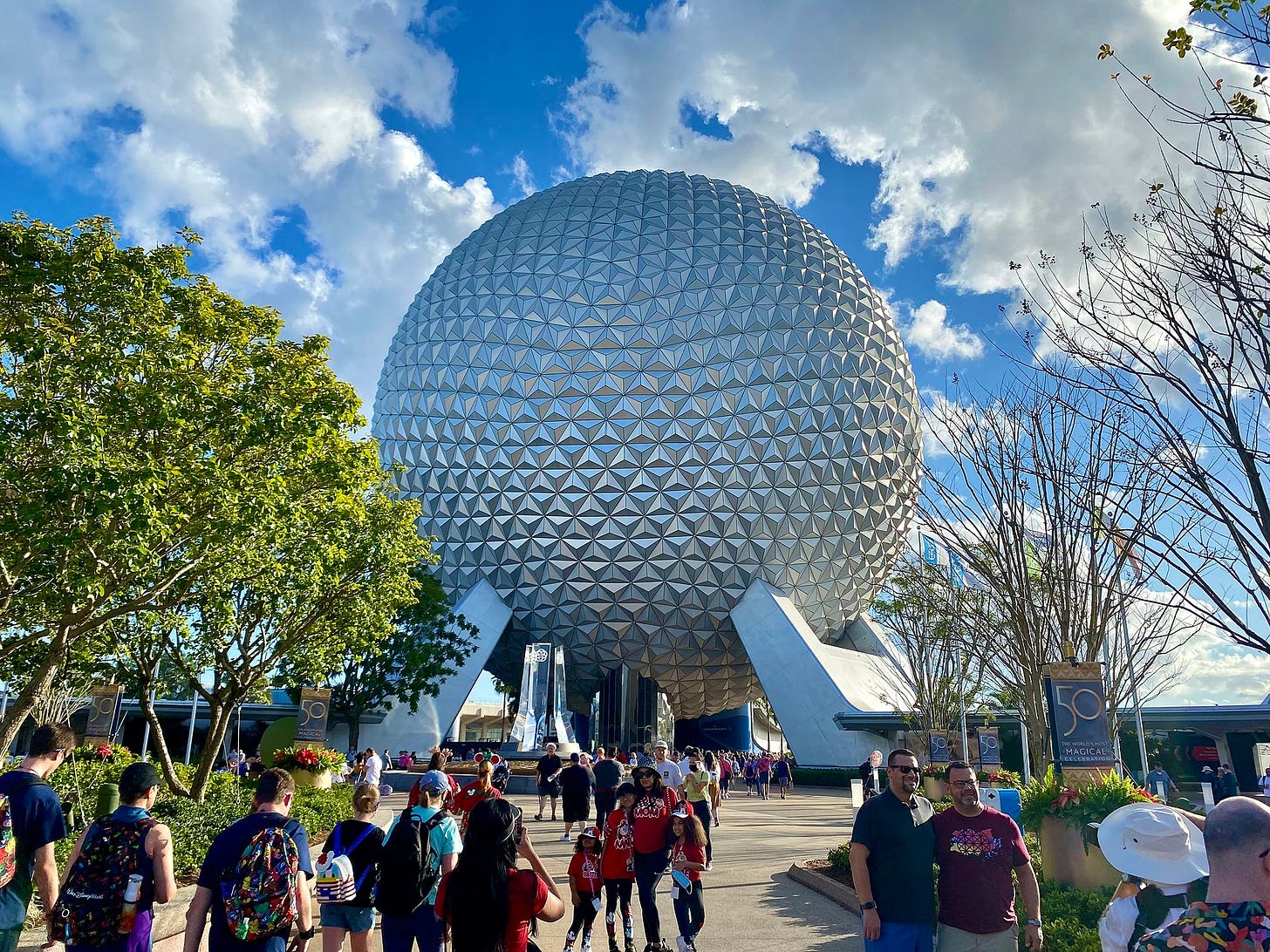 The giant silver golf ball at the center of the EPCOT theme park. Compare to the giant gold golf ball at the center of Auroville. I think someone should create a conspiracy theory about this.
The giant silver golf ball at the center of the EPCOT theme park. Compare to the giant gold golf ball at the center of Auroville. I think someone should create a conspiracy theory about this.
In the end, all Disney had was a forty-square mile corporate fiefdom, on which they built several cities. Overall they seem pretty nice, although more because of the magic of walkable urbanism than the magic of Disney.
But earlier this year, Florida passed a law banning schools from teaching LGBT topics to young children, which the media dubbed “the Don’t Say Gay Law”. Disney did some corporate activism against the law, the Florida government got mad and brainstormed ways to punish Disney, and the best they could come up with was to re-establish state control of Reedy Creek, which DeSantis officially did last month. Disney has sued the state, but it looks like it’s just over some debts and the lawsuit is unlikely to prevent the dissolution.
You get socialists in power, they dissolve charter cities. You get conservatives in power, they also dissolve charter cities. All I want is one government that doesn’t dissolve charter cities! Is that too much to ask?
Hello, Afropolitan
Last year venture capitalist and thought leader Balaji Srinivasan introduced the idea of a “network state”. With the advent of social networks and cryptocurrency, as well as increasing polarization leading people to group themselves more by ideological cohesion than geographic proximity, maybe people could group themselves into nonterritorial state-like communities. And although these would seem pretty thin compared to real states that have monopolies over use of force in real geographic areas, maybe some of them could use charter-city like systems to eventually buy land and graduate into full statehood.
(is this just the Hive System from Terra Ignota? I think so, but probably with fewer major governments being controlled by weird brothels.)
Anyway, Afropolitan has taken him up on this. They share a name with a landmark essay by Achille Mbembe (founding a country based on an especially good essay also sounds like something that would happen in Terra Ignota , as does history being changed by people named things like “Achille Mbembe”), arguing that Africa needs to re-invent or re-define itself or something. The founders of Afropolitan-the-company have taken this idea of a trans-national African diaspora and turned it into an “African DAO [and] digital nation…building a network state to unleash the maximum potential of Africans around the world”. They write:
The nation-state experiment has failed for Black people worldwide. It has yielded nothing but poverty, genocide, police brutality, ethnic strife, inflation, weak government, and the failure of our ecosystems.
All people who call themselves free have a fundamental right to create the society they want by choice collectively. As the internet enables us to shrink space and form bonds across the planet, no person should live in a society by accident or force.
…and go on to list a four-step plan to create the society of the future. Step One is to sell NFTs “representing the mythology of our new nation” . Step Four is “a[n] extensive system of charter cities akin to Singapore or Hong Kong”. In the unlikely chance that you care what Steps Two and Three are, you can find them here.
Why should you take them seriously? I am not at all claiming that you should. I am only claiming that “sell digital tokens representing mythology, but eventually this turns into a country” is the most Terra Ignota thing ever. Also, at least the founders have good aesthetics:
But also, some people are taking them seriously. VCs including Balaji Srinivasan has invested $2 million. The group claims to have 50,000 followers on Clubhouse. They’ve been featured on TechCrunch and (very briefly) Marginal Revolution.
I would, however, briefly challenge their claim to be “the first ever Internet country”. People have been building Internet countries as long as there has been an Internet. I’m not sure which was actually first, but I know the Kingdom of Talossa has been online since 1995. A 2000 New York Times article on the Internet country phenomenon profiled Talossa, but was already able to give six other examples. And although these were perhaps easy to miss, Danny Wallace started the Kingdom of Lovely, a “partly Internet-based project that claims a small amount of territory”, on a widely-viewed BBC documentary in 2007.
I myself got involved in an online country project back when I was a teenager in the early 2000s. Although no venture capitalists appeared to give me giant bags of money, it got a few dozen “citizens” and some fun government institutions before finally petering out around 2015.
I guess what I’m saying is - I’m available as an Internet country building consultant with fifteen years experience. And no, I don’t accept payment in NFTs.
Oh, You’re Still Here?
Meanwhile, in Honduras, it isn’t all legal doom and gloom. Prospera has also been making real progress, as measured in pretty photos.
Two Roatan resorts, Las Verandas and Pristine Bay, have joined Prospera. The ZEDE law saying that landowners can voluntarily annex their land into a willing ZEDE:
Prospera is also building a high-tech wood processing factory that will eventually produce parts for its other construction efforts:
And its first multi-story apartment buildings:
It will also be hosting gene therapy company Mini Circle, which runs clinical trials for innovative medical procedures. Granting that many of its studies (treatments for HIV, muscular dystrophy, obesity, etc) seem great and important, it perhaps seems suspicious that they would want to do this in a charter city?
The company writes that “the cost of running a trial in Prospera is less than 1/1000th the cost of the United States”, which seems good in ways but does not entirely allay my concern. I was originally worried that they would be experimenting on Hondurans or something, but looking at the site it looks like they’re recruiting worldwide and would probably fly Americans (or whoever else) to Honduras for the therapy.
Their site features a quote from friend-of-the-blog Alex K Chen, who says:
Minicircle’s bioscientists have one of the most enlightened risk taking calculi I have observed anywhere. In an environment where extreme hesitance to take any risk holds back scientific progress, they have the openness to imagine, try and measure just about any legal intervention putting them in a very strong position to both produce a significant measurable decrease in the human rate of aging, and to inspire more people to do what they never thought was possible.
I think the only way this could get more mad science points is if it used the phrase “small-minded fools”. Mind you, I think mad science points are good, I just hope everyone else sees it that way and my optimism turns out justified.
Also, apparently the clinical trials have NFTs, because of course they do. At least they’re not commemorative NFTs - they seem to play a load-bearing role where they help participants be incentivized to complete all the necessary tests.
Also, low-cost eco-residences!
Shorts
1: I previously mentioned the scam/fiasco/insane-idea of Hammer City, a planned black nationalist city in the Rocky Mountains. I knew it had failed, but I didn’t know exactly how. Now Colorado Sun has investigated. The proximal reason it failed was because the black nationalists started moving their paramilitary onto the land before they had officially bought it, the owner called the cops, and the cops removed them. The Hammer City team has not given back any of the $112,000 which they raised from extremely credulous donors (without using NFTs, even!)
2: The Charter Cities Institute continues doing the long-term ground-level work necessary to create long-term well-grounded charter cities which will be much too boring and responsible for me to write silly profiles of. Some of their most recent work has been with the Africa Next 50 Cities Coalition, which “convenes and mobilizes key stakeholders who are dedicated to harnessing Africa’s rapid urbanization for human prosperity”.
3: Also, CCI founder Mark Lutter has left the organization to start a charter city of his own, no public details yet. CCI will be looking for a new executive director.
4: Speaking of Disney, they’ve been building on their model city expertise and magical storybook branding by creating planned communities around the US - Story Living By Disney, starting with Rancho Mirage California. Realistically it just looks like a very nice planned community, but this planned community comes with the option to have people make fun of you forever for living in a Disney community as an adult.
Predictions for this month:
-
Prospera is still substantially a functioning ZEDE in 2025: 70%
-
Reedy Creek is still substantially independent and controlled by the Disney Corporation in 2025: 15%
-
Afropolitan has at least 10,000 paying members/citizens and makes more than $1 million per year in 2025: 15%
-
Afropolitan accomplishes Stage 4 of its plan by 2050: <1%
-
Mini Circle runs a clinical trial to the satisfaction of its corporate clients by 2030: 50%


